Meet The Faculty
/prod01/channel_2/media/mccms/content-assets/academics/residencies-and-fellowships/hematologyx2foncology-fellowship-arizona/hematology-oncology-az-dept-faculty3661462-0004-hero-tablet.jpg)
The Division of Hematology and Medical Oncology at Mayo Clinic in Phoenix/Scottsdale, Arizona has a number of specialty services composed of professionals dedicated to treating cancer and hematologic diseases and improving the quality of life for patients.
The department includes several subspecialty clinics, such as the Breast Clinic and Bone Marrow Transplant Program. The Division of Hematology and Medical Oncology is fully integrated with other medical specialties.
Annually, Mayo Clinic evaluates thousands of patients with diverse solid tumors and hematological disorders at the Arizona campus. In addition, Mayo evaluates a significant number of patients with nonmalignant hematologic disorders, including thrombocytosis, thrombocytopenia, neutropenia, and anemia. You play an important role in the care of these patients.
Mayo Clinic actively participates in clinical trials of newer therapies for malignant disorders, including many Phase I and Phase II trials. In addition to intramural protocols, other trials involve cooperative efforts with a variety of groups.
From the program director
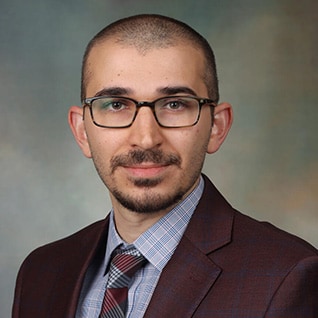 Welcome to the Hematology and Medical Oncology Fellowship at Mayo Clinic in Phoenix, Arizona. At Mayo Clinic, we are dedicated to providing exceptional patient care. Our fellowship is designed to provide a comprehensive and immersive experience that will equip you with the tools to provide exceptional patient care and jump-start your career in the fields of hematology and oncology.
Welcome to the Hematology and Medical Oncology Fellowship at Mayo Clinic in Phoenix, Arizona. At Mayo Clinic, we are dedicated to providing exceptional patient care. Our fellowship is designed to provide a comprehensive and immersive experience that will equip you with the tools to provide exceptional patient care and jump-start your career in the fields of hematology and oncology.
Throughout your fellowship, you will have the opportunity to work alongside thoughtful physicians and researchers, gaining hands-on experience in the diagnosis, treatment, and management of hematologic and oncologic disorders. You will have access to a learning environment with cutting-edge technology, resources, and multidisciplinary care teams. In addition to clinical rotations at Mayo Clinic, you will have the opportunity to rotate at satellite sites within the Phoenix metropolitan area including, the Phoenix Indian Medical Center and Valleywise Medical Center, which will provide you with unique opportunities to learn how to care for underserved populations.
Our fellowship offers ample opportunities for scholarly activity and research, allowing you to pursue your academic interest, while providing guidance and support as you navigate your career path beyond fellowship. Our alumni have gone on to pursue various career trajectories including academic practice, community practice, and industry.
I encourage you to explore all that our fellowship has to offer. We are dedicated to helping you achieve your goals and look forward to welcoming you to our family.
I invite you to look around our website and learn more about our program.
Talal Hilal, M.D.
Hematology and Medical Oncology Fellowship Program Director
Faculty
Physicians, scientists, residents, students, nurses, and allied health staff members work as a team guided by our mission statement. In addition to caring for patients in clinical practice, Mayo Clinic's faculty is committed to teaching and facilitating the growth of medical knowledge. Many of our faculty members have published and lectured extensively and are highly regarded in their fields. You have direct access to the hematology and oncology faculty at Mayo Clinic throughout your training in the Hematology and Medical Oncology Fellowship.
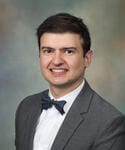 |
Felipe Batalini, M.D.Assistant Professor of Medicine Areas of focus: Precision medicine, Liquid biopsies, DNA damage and repair, and Hereditary cancers |
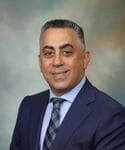 |
Tanios Bekaii-Saab, M.D.
Areas of focus: Colon cancer, Rectal cancer, Pancreatic cancer, Esophageal cancer, Cholangiocarcinoma, Liver cancer, Stomach cancer, Anal cancer, Gallbladder cancer, Cancer of unknown origin, Gastrointestinal stromal tumors, Small bowel cancer, Neuroendocrine tumor Leadership roles
|
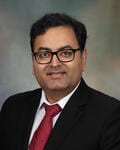 |
Saurabh Chhabra, M.B.B.S.Professor of Medicine Areas of focus: Blood and Marrow Transplantation, Cellular therapy, and Plasma cell disorders Leadership roles
|
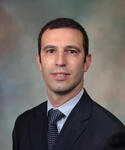 |
Vinicius Ernani, M.D.Assistant Professor of Medicine Areas of focus: Lung cancer, Mesothelioma, Thymic tumor |
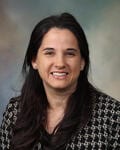 |
Brenda Ernst, M.D.Assistant Professor of Medicine Areas of focus: Breast cancer and Gynecologic malignancies |
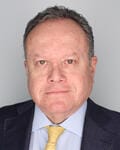 |
Rafael Fonseca, M.D.
Areas of focus: Bone marrow transplant, Multiple myeloma, Waldenstrom macroglobulinemia, Amyloidosis, Monoclonal gammopathy of undetermined significance Leadership roles
|
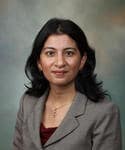 |
Nandita Khera, M.D., M.P.H.Professor of Medicine Areas of focus: Lymphoma, Non-Hodgkin's lymphoma, Diffuse large b-cell lymphoma, Hodgkin lymphoma, Follicular lymphoma, Cutaneous b-cell lymphoma, Cutaneous t-cell lymphoma Leadership roles
|
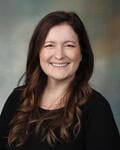 |
Leslie Padrnos, M.D.Assistant Professor of Medicine Areas of focus: von Willebrand disease Leadership roles
|
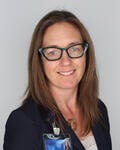 |
Jeanne Palmer, M.D.Assistant Professor of Medicine Areas of focus: Bone marrow transplant, Graft versus host disease, Myelodysplastic syndromes, Myeloproliferative disorders Leadership roles
|
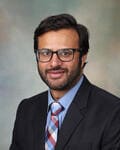 |
Irbaz Riaz, M.B.B.S., M.S.
Areas of focus: Cancer bioinformatics, digital transformation of cancer care, living evidence synthesis, and AI assisted Electronic Health Records |
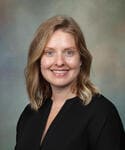 |
Allison Rosenthal, D.O.Assistant Professor of Medicine Areas of focus: Lymphoma, Non-Hodgkin's lymphoma, Diffuse large b-cell lymphoma, Hodgkin lymphoma, Follicular lymphoma, Cutaneous b-cell lymphoma, Cutaneous t-cell lymphoma |
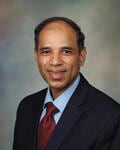 |
Mahesh Seetharam, M.D.Areas of focus: Melanoma, Bone cancer, Soft tissue sarcoma, Merkel cell carcinoma Leadership roles
|
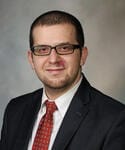 |
Bassam Sonbol, M.D.Assistant Professor of Medicine Areas of focus: Colon cancer, Rectal cancer, Pancreatic cancer, Carcinoid tumor, Esophageal cancer, Cholangiocarcinoma, Liver cancer, Stomach cancer, Gallbladder cancer, Small bowel cancer, Neuroendocrine tumor Leadership roles
|
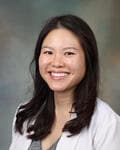 |
Mazie Tsang, M.D.Assistant Professor of Medicine Areas of focus: Lymphoma, Chronic lymphocytic leukemia, Waldenstrom macroglobulinemia |
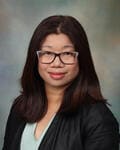 |
Christina Wu, M.B., B.Ch., M.D.Professor of Medicine Areas of focus: Colon cancer, Rectal cancer, Pancreatic cancer, Esophageal cancer, Cholangiocarcinoma, Stomach cancer, Anal cancer, Hepatocellular carcinoma |
Advisers and mentors
You are assigned a dedicated faculty adviser who can provide comprehensive educational advice and personal support. Trainees meet with their advisers periodically throughout the program to review their progress and career goals, and ensure that their educational needs are being met. Your adviser also serves as a contact point for introducing you and your family to the Phoenix area and the Mayo Clinic system.
Visiting professors
Many prominent professors visit Mayo Clinic each year. They present their work during lectures, participate in hospital rounds and have informal discussions with trainees. You are encouraged to take full advantage of these educational opportunities.